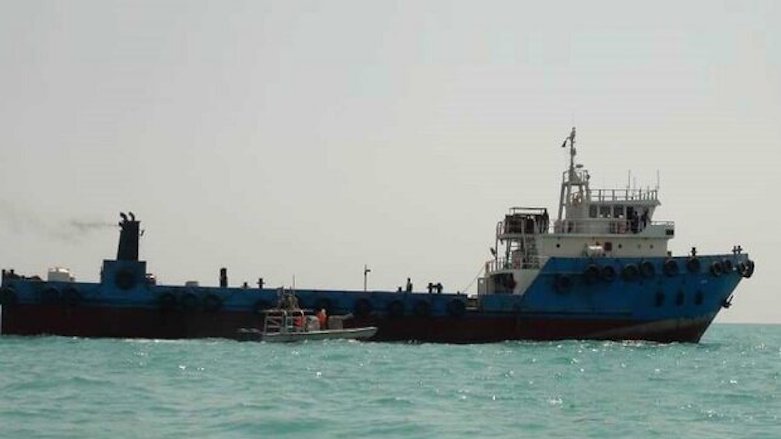Iran says seized another foreign oil-smuggling ship in Gulf

ERBIL (Kurdistan 24) – The Iranian military on Sunday announced the seizure of another oil tanker in the Persian Gulf days earlier for allegedly smuggling the commodity to Arab countries, marking the second such ship Iran charges with illicit activity in the Gulf waters.
The capture came late on Wednesday near Farsi Island of the Persian Gulf, Ramazan Zirahi, an Islamic Revolutionary Guard Corps (IRGC) naval forces commander, told the semi-official Fars News Agency.
The foreign vessel was “transporting [oil] it had received from other ships to Arab countries in the Persian Gulf.”
There were also seven crew members aboard.
Zirahi claimed the tanker seizure came in coordination with the country’s judicial authorities, adding that it was carrying 700,000 liters of oil, which is the equivalent of about 4,400 barrels.
Another government-affiliated media outlet, Mehr News Agency, reported that the ship was being taken to the shores of the coastal city of Bushehr.
The incident comes amid heightened tensions in Gulf waters with Iran reportedly having captured three oil tankers so far in recent weeks, with one of them being the British-flagged Stena Impero in the Strait of Hormuz after the United Kingdom’s marine forces impounded an Iranian tanker off the coast of Gibraltar.
Read More: Iran threatens Britain with retaliation if tanker not released
On July 4, London said the Iranian vessel Grace 1 was headed for Syria in contravention with European Union sanctions. Tehran denied this and described the UK’s action as “piracy.” Two weeks later, the IRGC announced it had seized a British tanker, spiking tensions between the two countries.
Read More: Iran seizes British oil tanker in Strait of Hormuz
Iran’s President Hassan Rouhani hinted at the possibility of an exchange between the two countries, but London has rejected this. The new British Foreign Secretary, Dominic Raab, stated during a BBC interview last week that the UK insists on upholding “international law and the rules of the international legal system.”
Regional as well as international powers are keeping an eye on the Gulf, through which a significant portion of the world’s oil supply is exported. The UK has deployed a warship to the region to protect its shipping.
As the United States sent more forces to the increasingly volatile region, the IRGC shot down an American surveillance drone in June, which it claimed had breached Iranian air space. In response, US President Donald Trump said he had ordered a military strike on Iranian targets only to call it off in the last minute.
The US–Iran standoff gained traction last year when Washington withdrew from a nuclear deal between Iran and world powers and imposed successive rounds of punitive sanctions on Tehran.
Iran has already reduced its commitments to the deal and has threatened to abandon the agreement entirely should other signatories not guarantee protection from crippling US sanctions.
Editing by Karzan Sulaivany
